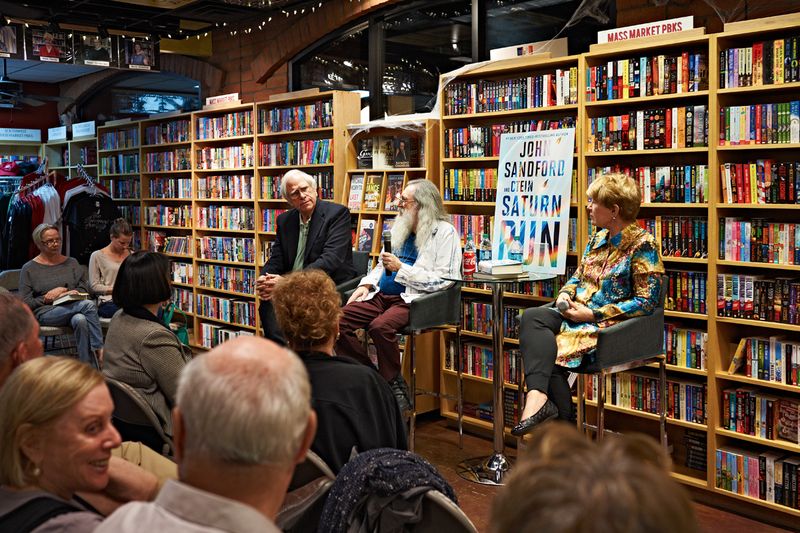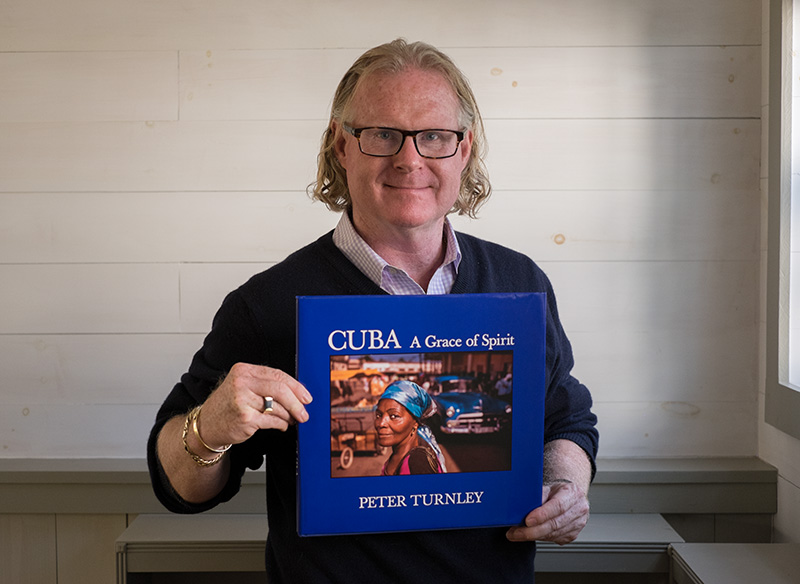It's been a busy few days here at TOP Rural HQ. (I no longer refer to it as "World" headquarters; we have given up our former ambitions of world conquest. Too much competition.) Note to other one-man-band one-person-band bloggers: never write even glancingly about religion unless you welcome extra work.
More reading about grammar, oh joy
...And that applies to "religious" topics outside of religion, too. I'm always pleased to have a real expert in my corner, taking my side in an argument I have put forth that I have neither the wit nor the knowledge to support on my own. In the case of my incendiary comments about the beloved and avuncular Strunk & White the other day, the cavalry comes to the (well, to my) rescue in the person of one Geoffrey K. Pullum, an actual real-life grammarian and a Professor of General Linguistics in the School of Philosophy, Psychology, and Language Sciences at the University of Edinburgh in Scotland (although I believe he is American—apparently he lived here for many years, at least). (MarkR first pointed me to him.)
He has written several times about "Strunk & White" (The Elements of Style). The article slanted more toward a popular audience is rather provokingly called "50 Years of Stupid Grammar Advice" and appeared in The Chronicle of Higher Education in 2009 (thanks to KeithB for this). The professor is not critical of Prof. Strunk and Mr. White themselves: "I'm not nitpicking the authors' writing style. White, in particular, often wrote beautifully, and his old professor would have been proud of him." Regarding their grammar advice, however, the good professor's gloves come off: "The book's toxic mix of purism, atavism, and personal eccentricity is not underpinned by a proper grounding in English grammar." For one thing, he (entertainingly) points out that Strunk and White frequently violate their own directives, sometimes even in the same paragraph in which they propose the rule:
"Keep related words together" is further explained in these terms: "The subject of a sentence and the principal verb should not, as a rule, be separated by a phrase or clause that can be transferred to the beginning." That is a negative passive, containing an adjective, with the subject separated from the principal verb by a phrase ("as a rule") that could easily have been transferred to the beginning.
In one sentence, in other words, Strunk and White violate fully four of their own principles, including the very one they are setting forth. He gives more such examples.

The Grammarian: Geoff Pullum. Photo by Timo Klein.
The more scholarly article appears in the journal English Today and is titled "The Land of the Free and The Elements of Style." It appeared in 2010, which makes me think it might have been written because of all the flak Prof. Pullum must have gotten following the publication of the first article; although that's just a guess. He reiterates the points of the 2009 article, some in greater detail, and adds more.
He also compares Strunk & White to its Ur-text—Strunk alone, that is, pre-1959—so as to discover which prejudices and errors are White's. He discovers that because one of White's rules prohibits a construction that Strunk himself used, White went back and purged all the instances of it from his former professor's writing! And, it turns out, it is none other than Andy White who is solely responsible for the longstanding and pervasive prejudice against the poor maligned split infinitive. Say it ain't so!
The second article's conclusion, of course, is similar: "My judgment [is] that The Elements of Style is a hopeless guide to English usage and has been deleterious to grammar education in America. I do not think the issue is trivial. The Elements of Style does real and permanent harm...sensible adults are wrongly persuaded that their grasp of their native tongue is imperfect and their writing is incorrect. No good purpose is served by damaging people’s self-confidence in this way."
The allure of being learned is only for those who will learn
I have my own private guess to explain the popularity of Strunk & White. When I was in eighth grade, we had a "gentleman amateur" English teacher, a parent who taught only one or two classes (arriving from his estate in the woods north of the city in a variety of antique sports cars). He actually let our class vote on whether we wanted to learn grammar. Our vote was yes, so he started in on the subject. Five days later, we overruled ourselves and demanded a new vote, by which we overwhelmingly changed our decision to no—exclamation point elided but implied.
The lesson I took from that experience is that grammar is a wonderful thing to know but a horrible thing to learn. (I myself know almost nothing about it...but then, my entire formal education in the subject lasted five days, so what can you expect?)
Strunk & White is popular because it provides the illusion of knowledge while giving the reader permission to set the subject aside. Learn these few simple, sensible-sounding rules, it seems to say, and you will have done enough. It's a formidable promise for a book to make, and Americans have been gratefully accepting its offer for 57 years now. Because who wants to have to learn grammar?
Vids, vids, vids, vids
It hasn't escaped my notice that there are an awful lot of camera review sites now. Most recently, they all seem to be in the form of videos, some of which are very nicely made.
Video bores me generally (except YouTube videos of snooker matches, of course, which are so exciting that they keep my eyes riveted on my monitor. There's always that one vivid exception to any rule!). Generally I would much rather read a review at my own pace than be forced to sit still while a presenter plods along at his pace. How else but in written form can I consume an online review in the proper fashion, cherrypicking only the "Introduction" and the "Conclusion" and skipping over all the dreary technical bits in the middle?
It's not nice (or too smart, actually) for a reviewer to review his competition. But one thing struck me as I was watching some of these video reviews last week (I'm not saying this is true of all of them): some of them could very easily be corporate PR. It's not that they share some features of corporate PR; it's not that they present some of the information the same way; it's that they're indistinguishable from it. It's like they're interviewing for it and what we're watching is the screen test.
That's the better ones. The worse they are, the more incompetent and superficial and bumbling, the less they do resemble PR, it's true...but of course then they have those other faults.
A point of view
Back when I was an editor I had a simple rule for reviewers: don't repeat things the reader can get from the manufacturer's sales literature or from the instruction manual. It seems now that many reviews don't offer anything but. (Or maybe they're following one of the admonitions from The Elements of Style: "Do not inject opinion.")
Wouldn't it be better, now that there are so many review sites and channels, for reviewers to go the opposite way? Instead of being so careful and technical, wouldn't it be better for some of 'em to have a stronger flavor, and more opinionation as opposed to less? It would be more interesting. What they seem to lack is not just judgements of any kind but a point of view. There's nothing wrong with having a point of view. No one is under the misapprehension that we are omnipotent. The key is to be clear and forthright about your taste, your prejudices, and your own needs, and then to go ahead and write or perform the review as if you were yourself.
If there were only a small or limited number of reviewers out there and only a few places for people to get any information at all, well then, fine—caution, evenhandedness, a conservative focus on features, and a sober piety might even be fitting. But these videos are all over the place. When I get to the third or fourth one turgidly going over the same feature yet again, one I already knew about from the B&H product page, my head starts to flop to the side and I begin to drool.
But they're all lovely and all the people who make them are above average, so please don't kill me, please. I will now stop talking about the competition again, which is my usual stance, or state.
Mike
(Thanks to KeithB and several others)
Original contents copyright 2016 by Michael C. Johnston and/or the bylined author. All Rights Reserved. Links in this post may be to our affiliates; sales through affiliate links may benefit this site.
Splitting infinitives since 2005
Like Mike or Patronize TOP’s affiliates
(To see all the comments, click on the "Comments" link below.)
Featured Comments from:
Colin Work: "I'm sure there are some great review videos out there, but I seldom see them. I don't sit down of an evening to watch reviews. I have better things to do. But I do like to read reviews when I have a spare moment during a work break, on a train etc. I'll probably be using a phone or tablet, and don't like using headphones. So, sorry to all you vloggers, you may have the time to produce this stuff, but in my case, it's wasted time 'cause I don't have the time to watch it. Want my attention? Put it in writing—and make sure the first couple of paragraphs convince me that reading the rest will be worthwhile. By all means include a link to a video in your text to illustrate something or other—if your article is good, I may watch it at some point. I suspect part of the attraction of video is the lure of some revenue via YouTube advertising."
David Raboin: "Thank you for this post Mike! My 7th grade English teacher convinced me that I was a hopeless writer because I couldn't diagram a sentence. Then, after 7th grade, my school district loosened it's English curriculum and I never received another grammar lesson. While I felt lucky to avoid that dreaded subject, I also never overcame my self-consciousness about grammar. Last summer, I downloaded the $.01 Kindle version of Elements of Style to see if I could figure out grammar as an adult. Part way in I started to question myself because it seemed like Strunk and White were contradicting themselves. Certainly I must not know how to correctly identify the passive voice because I was finding it everywhere in Elements of Style. I was sure I was wrong. Now, thanks to this post, I feel vindicated. Maybe this is the confidence boost I need to get back to work on that book I'm procrastinating?"
Mike replies: You made an error in the third sentence, David—"possessive 'its' never gets an apostrophe." We just have to memorize that.
But my point is, so what if you made an error? As an online writer I have to be my own copyeditor and proofreader, and it fits my skill set because I used to be a magazine editor. (Though, I should note in passing, a magazine editor who had a copyeditor, Nancy, and a proofreader, Burt. Nancy taught me lots of tricks and things to look for, but I overruled about half of her red-penciled corrections. Many of her corrections made me laugh—she once struck out a whole paragraph written by a famous photographer and scribbled in the margin, "A complete mess—toss the whole thing.") But real writers don't even need to know how to spell. Neither Ernest Hemingway nor Jane Austen could spell. Nor could William Butler Yeats or Agatha Christie. I'm capable of writing grammatically but I never studied grammar—I picked it all up by ear, and by working out problems I encountered as I wrote. Editing poor writing can be hard work (the error in your last sentence would be a little harder to correct while preserving your word choice and voice, for example)—but good writing doesn't have to be error-free. That's what copyeditors and proofreaders are for. Write that book!
Steve Jacob (partial comment): "A film or book review would be very boring if it was factual. You can wrap all the facts into performance tables and give me a straight, down to earth, subjective opinion, as long as you can back it up with something more than 'I'm a genius so my opinion is the best.' Things like 'camera handling' and 'lens character' are totally subjective, but useful to know, as long as you also know the reviewers general preferences, and how yours compare. There is a film reviewer in the UK who I disagree with about 50% of the time, but I know exactly where we differ. Because he is 100% consistent and open about his preferences, I find his reviews exceptionally useful."
emptyspaces: "I make videos about various electronics for an online retailer, and I feel everyone's pain. We don't do reviews, they're just stand-ins for those who don't want to read the web copy on a given product. And our data shows us two things: first, products we sell that have videos attached sell at a significantly higher rate, and second, most people don't read any of the web copy.
"I started out as a copywriter. Most of the 'problems' people would write to us about were addressed in the first paragraph of web copy, or at worst in the second or third. A higher and higher percentage of people just can't be bothered to read anything at all while they're shopping. Despite that being my job, I, too prefer written articles. I only turn to video in a 'how-to' situation, generally. When I shop, I rarely if ever use video in my research."







































